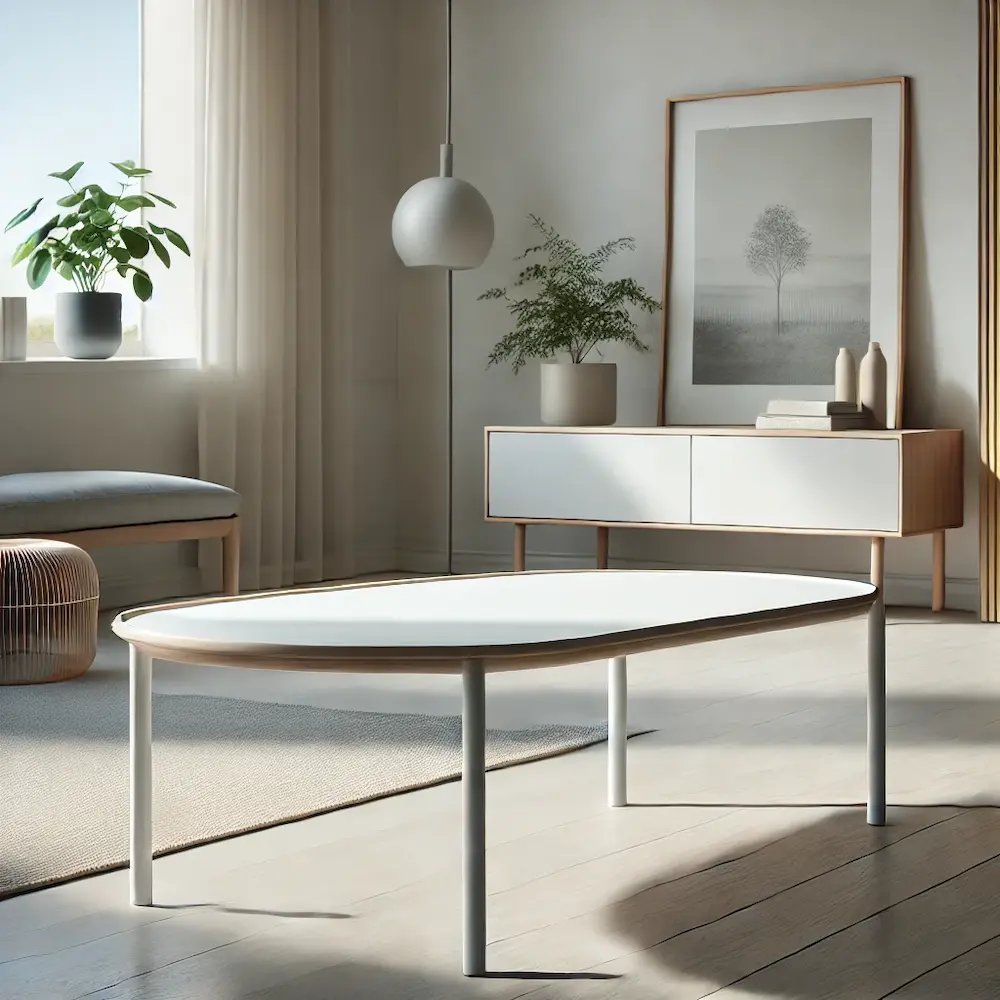A minimalist coffee table embodies the essence of simplicity and functionality, serving as a central piece in contemporary living spaces.
History and Origins of Minimalist Coffee Tables
The minimalist design movement emerged in the mid-20th century, emphasizing clean lines, uncluttered spaces, and a focus on essential forms. This aesthetic influenced furniture design, leading to the creation of coffee tables that prioritize function and simplicity over ornate decoration. Designers like Isamu Noguchi contributed to this movement with pieces such as the Noguchi table, introduced in 1947, which features a simple yet elegant design that has become iconic in minimalist furniture.
Key Features of Minimalist Coffee Tables
Minimalist coffee tables are characterized by:
- Simplicity in Form: Featuring clean lines and geometric shapes, these tables avoid excessive ornamentation, focusing on sleek, geometric forms that add visual interest without overwhelming the room.
- Neutral Colors: Utilizing a palette of whites, blacks, grays, and natural wood tones, they blend seamlessly into various interior designs, creating a sense of cohesion and calm.
- Functional Design: Prioritizing practicality, many minimalist coffee tables incorporate features like additional storage or surfaces that accommodate various needs without adding clutter.
- Quality Materials: Often constructed from materials such as glass, metal, or light, unfinished woods, these tables emphasize durability and a connection to natural elements.
Applications of Minimalist Coffee Tables
Minimalist coffee tables serve multiple purposes:
- Functional Use: Providing a surface for beverages, books, and decorative items while maintaining an uncluttered appearance.
- Aesthetic Appeal: Acting as a focal point that enhances the minimalist design of a living space, contributing to a serene and organized environment.
- Space Optimization: Their simple designs can make a room appear larger and more open, which is particularly beneficial in smaller living areas.
Considerations When Choosing a Minimalist Coffee Table
When selecting a minimalist coffee table, consider the following:
- Size and Proportion: Ensure the table’s dimensions are appropriate for your space, typically about two-thirds the length of the sofa, and that it complements the surrounding furniture.
- Material and Finish: Choose materials that align with your interior design and lifestyle, considering factors like durability and maintenance.
- Functionality: Assess the need for additional features such as storage or modular components that can enhance the table’s practicality.
- Style and Design: Select a design that reflects your personal taste and the minimalist aesthetic, whether it be Scandinavian, industrial, or mid-century modern.
Conclusion
Minimalist coffee tables exemplify the harmony of form and function, embodying the principles of simplicity and practicality. By focusing on essential design elements and quality materials, they enhance contemporary living spaces, offering both utility and aesthetic appeal.
